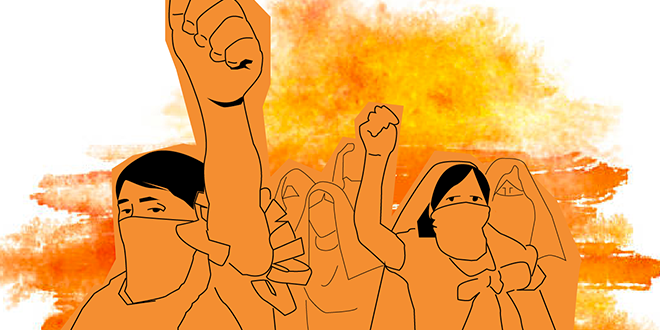Multiple Injustices: Indigenous Women, Law, and Political Struggle in Latin America

Design by Jenny Dodge
On Nov. 16, the UCLA American Indian Studies Center hosted an intergenerational conversation in which acclaimed author and activist Dr. Rosalva Aída Hernández discussed the implications of her most recent book, “Multiple Injustices: Indigenous Women, Law, and Political Struggle in Latin America.” The conversation was moderated by Dr. Shannon Speed, director for UCLA’s American Indian Studies Center, with additional commentary by Brenda Nicola, a PhD student.
The goal of the event was to shed light on the content of Dr. Hernandez’s book and the questions it raises about the way indigenous Latin Americans are perceived and treated. Dr. Hernandez took particular issue with the fact that “literature of South America rarely has a dialogue with literature of indigenous Americans,” adding that her book is a “result of multiple dialogues.”
Before describing the book itself, Dr. Hernandez wanted to clear the air about a point of contention potential readers might have with the book: it is written in English. Dr. Hernandez acknowledged the irony of publishing a book that focuses on the experiences of primarily Hispanic women; however, she reasoned, publishing in English created a “bridge” between English-speaking readers and Hispanic readers which allowed for more dialogue to be produced.
While the book isn’t a direct chronology of Dr. Hernandez’s numerous activist research projects, it does describe one of her most important endeavors in which she collaborated with unjustly incarcerated indigenous women at various prisons in Mexico. She helped increase literacy by facilitating a writing project in which Mestizo women transcribed the life stories of illiterate indigenous women. Dr. Hernandez detailed how the “life stories became a way of theorizing,” because the individual stories had larger implications for fighting against colonial violence.
The literacy project naturally developed to be more inventorial, in the sense that indigenous women’s stories were finally being documented. Dr. Hernandez collaborated with the inmates to document the injustices they faced, the most common of which was that many inmates didn’t understand why they were in prison due to an extreme language barrier. Additionally, many of the women had only been incarcerated because their husbands or male family members were in possession of drugs, but those men were not home at the time police officials came to make the arrest, so the women were arrested instead.
Dr. Hernandez’s work raises many questions about the intersection of justice with indigenous women, one of the most important being: how does local justice impact national and international concepts of justice? For example, does convicting one rapist of an indigenous woman right the wrongs of hundreds of years of colonial violence? Can a local conviction be used as precedent for international law to improve justice in the future? These are some of the incredibly valuable dialogues Dr. Hernandez hopes to catalyze by publishing “Multiple Injustices.”
Dr. Hernandez’s work demonstrates the importance of intersectional knowledge production and initiation of dialogues across cultures. With her specific research projects like the prison literacy project, she proves that indigenous women are not just resisting colonial violence, they are providing foundations for theory and producing knowledge fundamental to reconciling violent history with a just future.




